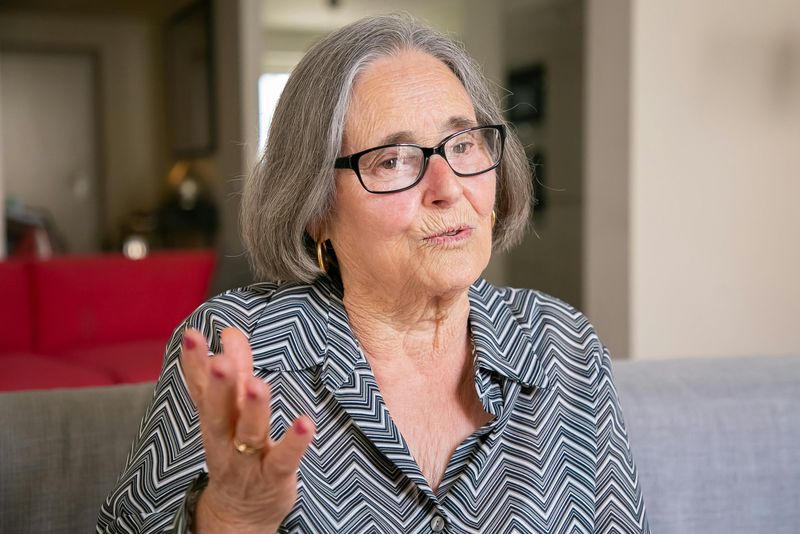10 Reasons Why Broken People Give the Best Advice (And Why You Should Sometimes Be Careful About Taking It)

The people who’ve been through the darkest times often sound like the wisest voices in the room. They’ve survived heartbreak, loss, betrayal, and failure—and they’re quick to hand out lessons about what those experiences taught them. Sometimes their advice feels like a lifeline. Other times, it’s more like a warning flare. But here’s the tricky part: while their insights can be valuable, they often come wrapped in trauma. That means the advice they give might not just be about you—it might also be about them. And that’s where things get complicated.
1. They’ve Lived Through It

Real-life scars carry a weight that theory never can. When someone has survived heartbreak or hit rock bottom financially, their advice comes with proof that they’ve been there. You don’t feel like you’re listening to a motivational poster—you feel like you’re listening to a survivor.
This makes their words feel more authentic. Unlike a self-help guru spouting generic lines, a damaged person’s advice is rooted in personal battle scars. That’s why it resonates so strongly.
Still, the danger lies in assuming that their experience is universal. What worked—or didn’t work—for them won’t always apply to you. Listening is useful, but adopting it as gospel might steer your life in a direction that isn’t truly yours.
2. They Don’t Sugarcoat

Honesty is one of the main reasons people turn to those who’ve been hurt. They don’t waste time wrapping their advice in pretty words. Instead, they tell it like it is, because they know what happens when people ignore hard truths.
This bluntness can feel refreshing. While others may say, “It’ll be fine,” the damaged friend says, “It might not be fine, but here’s how you’ll get through it.” Their raw delivery makes you believe they’re giving you the real deal.
On the flip side, blunt advice can sometimes come across as harsh or discouraging. Without a filter, their words might cut deeper than intended, leaving you with more fear than clarity.
3. They Understand Pain Better

Empathy runs deep in people who’ve been broken before. They know what it’s like to cry yourself to sleep or wonder if you’ll ever bounce back. Because of that, their advice often feels like it’s wrapped in understanding, not judgment.
This can be incredibly comforting. You feel seen and validated, which makes their advice easier to accept. They’re not just telling you what to do—they’re connecting with how you feel.
Yet empathy isn’t always enough. Just because they relate to your pain doesn’t mean they know the healthiest way forward. Sometimes, what soothes your heart in the moment might not actually solve the problem in the long run.
4. They Speak With Authority

Confidence tends to radiate from those who’ve survived tough experiences. When someone tells you how they clawed their way back from disaster, it’s hard not to take their words seriously. They’ve proven they can handle chaos, which makes their advice sound trustworthy.
That authority can feel like a warm blanket—you think, “If they made it through, maybe I will too.” Their survival story makes their advice almost magnetic.
But here’s the catch: survival doesn’t equal flawless wisdom. Just because someone managed to make it out the other side doesn’t mean they always know the healthiest or smartest path forward for you. Their authority is earned—but it’s not always absolute.
5. They Might Project Their Own Trauma

Advice isn’t always about you—it can sometimes be about them. When people haven’t fully healed, their guidance may reflect their fears, regrets, or insecurities more than your actual situation.
For example, someone who was betrayed might insist you should “never trust anyone again.” That advice feels protective, but it’s really a reflection of their unresolved hurt.
This kind of projection is tricky because it often sounds like wisdom. But if you scratch the surface, you realize it’s colored by their past. Listening too closely can cause you to inherit their wounds instead of learning from your own experiences.
6. They Can Make You Fearful Too

Survival stories can feel like warnings disguised as advice. Instead of pushing you forward, they sometimes anchor you in fear. You hear their words and suddenly imagine worst-case scenarios that may never happen to you.
This kind of advice usually comes from a good place—they don’t want you to suffer like they did. But what protected them once might keep you from growing now. Fear-based advice often sounds safe, but it can also be paralyzing.
It’s important to recognize when someone is teaching you to be careful versus when they’re teaching you to be afraid. The difference could change the entire course of your choices.
7. They May Overgeneralize

People tend to believe their story equals “the story.” When someone has been through trauma, they may assume what happened to them will inevitably happen to you. Their advice becomes a blanket rule, even if your life looks very different.
This overgeneralization can limit you. Maybe their heartbreak leads them to say “all relationships fail,” or their financial struggles make them insist “money always runs out.” These sweeping statements sound convincing because they’re rooted in real pain.
But reality is more nuanced. What happened to them might not happen to you. Taking their experience as an absolute truth can box you into a future that isn’t actually yours.
8. Their Words Feel Powerful

There’s something magnetic about listening to someone who’s lived through darkness. Their words feel charged with raw emotion, and that power makes their advice stick in your mind long after the conversation ends.
This intensity is why people often turn to damaged individuals for guidance. Their stories move you in ways that polished advice never can.
But power isn’t the same as accuracy. Just because someone’s words hit hard doesn’t mean they’re the right words for you. Sometimes the most compelling advice can also be the most misleading, especially if it’s rooted in unresolved pain.
9. Their Empathy Can Be a Double-Edged Sword

Feeling understood is priceless. Damaged people often create that sense of connection instantly because they’ve felt the same emotions you’re feeling. Their empathy makes their advice comforting and believable.
However, empathy can blur lines. They might assume your situation mirrors theirs and offer advice that worked for them but doesn’t fit your reality. They care deeply—but sometimes that care clouds their perspective.
In the end, empathy is powerful, but it’s not perfect. It helps you feel less alone, but it doesn’t guarantee the advice is the right solution for your life.
10. You Still Need to Filter Their Advice

At the end of the day, wisdom and wounds are often tangled together. Damaged people may offer brilliant insights that help you see the world differently—but their scars can also distort their vision.
That’s why it’s crucial to listen with discernment. Take the perspective, appreciate the lessons, but filter out the fear, bitterness, or projection. Their experience can inspire you, but it shouldn’t dictate every choice you make.
The truth is, the best advice often comes wrapped in both value and risk. Learning how to separate the two is what will truly help you grow.

Comments
Loading…